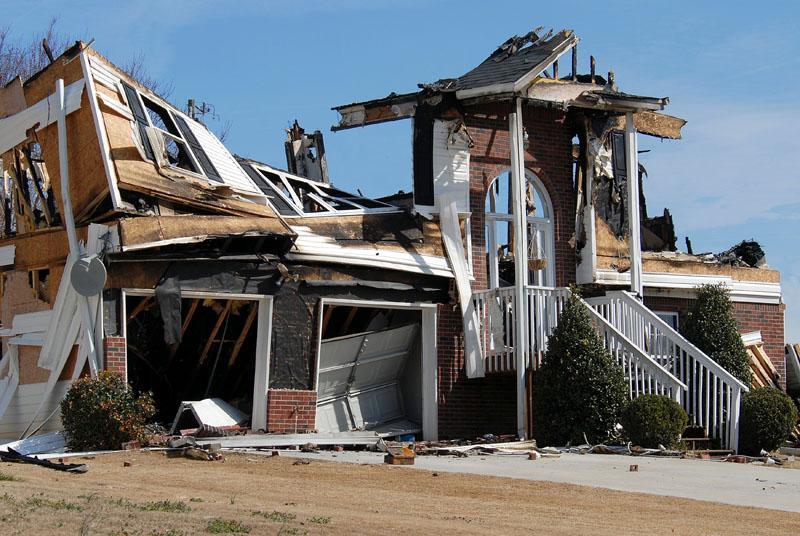Understanding the Risks of Demolition and Excavation Work
Demolition and excavation work pose significant risks that can impact the safety of workers, the environment, and surrounding properties. It is crucial for contractors and stakeholders involved in such projects to have a comprehensive understanding of these risks to ensure adequate protection and mitigating measures.
Risks Associated with Demolition and Excavation Work
- Potential Hazards and Risks: Inherent dangers such as structural collapses, falling debris, and unstable ground conditions are prevalent in demolition and excavation work.
- Environmental Risks and Implications: The potential for soil erosion, water contamination, and hazardous material exposure during excavation activities necessitates a focus on environmental protection.
- Liability Concerns: Property damage or bodily injury to third parties due to construction-related activities can lead to legal and financial liabilities for contractors.
Importance of Specialized Coverage for Demolition and Excavation Contractors
- Coverage Deficiencies in Typical Policies: Conventional insurance plans may not adequately address the distinct and high-risk nature of demolition and excavation work.
- Crucial Need for Specialized Coverage: Tailored insurance is essential to encompass the specific liabilities and risks inherent in demolition and excavation operations.
- Protection Against Unforeseen Incidents: Specialized coverage offers financial security and peace of mind by shielding contractors from unforeseen incidents and their consequences.
By comprehensively understanding the risks and the necessity for specialized insurance coverage, contractors can proactively prepare for potential challenges. Now, let’s delve into the specialized insurance coverage available for demolition and excavation contractors.
Specialized Insurance Coverage for Demolition and Excavation Contractors
Demolition and excavation contractors require specialized insurance coverage to address the unique risks and challenges associated with their operations. Understanding the specific types of insurance tailored for this industry is essential for ensuring comprehensive protection in the event of unforeseen incidents.
Types of Insurance Specifically Tailored for Demolition and Excavation Work
- General Liability Insurance: This coverage provides protection against claims for bodily injury, property damage, and related legal costs arising from third-party claims.
- Contractors Pollution Liability Insurance: Designed to safeguard against liabilities related to environmental pollution and contamination, which are significant concerns in demolition and excavation activities.
- Inland Marine Insurance: This specialized coverage is crucial for protecting high-value equipment, tools, and machinery that are frequently moved from one location to another during demolition and excavation projects.
- Workers’ Compensation Insurance: Offering support for employees who suffer work-related injuries or illnesses, this coverage ensures that medical expenses and lost wages are addressed, reducing the financial burden on the contractor.
Demolition and Excavation Equipment Insurance
- Coverage for High-Value Machinery: Specialized insurance is necessary to protect high-value machinery and heavy equipment, providing coverage for repair or replacement in the event of damage or theft.
- Specific Risks Associated with Equipment: Understanding the unique risks associated with equipment used in demolition and excavation, such as potential damage from hazardous materials or structural collapses.
- Importance of Comprehensive Coverage: Comprehensive insurance coverage for equipment is indispensable, as it safeguards against breakdowns, theft, and damage, ensuring seamless project operations.
By having a clear understanding of these specialized insurance options, contractors can ensure that their business and assets are adequately protected in the face of potential risks. Now, let’s explore the crucial considerations when selecting the right insurance coverage for demolition and excavation work.
Choosing the Right Insurance Coverage
Selecting the appropriate insurance coverage for demolition and excavation work is a critical task that demands careful consideration of various factors. Contractors must evaluate the unique needs of their projects and ensure compliance with insurance regulations, all while securing comprehensive protection against potential risks.
Considerations When Selecting Insurance for Demolition and Excavation Work
- Scope and Scale Evaluation: Understanding the magnitude and intricacies of demolition and excavation projects is essential for determining the extent of insurance coverage required.
- Regulatory Compliance: Familiarizing with local, state, and federal insurance requirements and regulations is crucial to ensure full compliance and avoid potential legal implications.
- Assessment of Specific Needs: Contractors should conduct a comprehensive assessment of their business operations to identify the specific risks and liabilities associated with their work.
Key Factors in Selecting an Insurance Provider
- Reputation and Experience: Contractors should seek insurance providers with a proven track record in offering specialized coverage for demolition and excavation contractors.
- Customization Options: Tailoring insurance coverage to the unique needs of the contractor’s operations is paramount for ensuring comprehensive protection.
- Claims Handling and Responsiveness: Evaluating the claims handling process and the responsiveness of the insurance provider is crucial for seamless and efficient support in the event of incidents.
By taking these considerations into account, contractors can make well-informed decisions when navigating the insurance landscape for demolition and excavation work. Now, let’s delve into the crucial aspect of cost considerations and budgeting for specialized insurance coverage.
Cost Considerations and Budgeting for Insurance
Effective budgeting and cost management are essential components of procuring specialized insurance coverage for demolition and excavation contractors. Understanding the factors impacting insurance premiums and strategizing for optimal financial planning ensures that contractors can secure comprehensive protection without overextending their budget.
Cost Factors Impacting Insurance Premiums
- Nature and Scale of Projects: The complexity, size, and duration of demolition and excavation projects directly influence insurance premiums, with larger and higher-risk projects typically commanding higher premiums.
- Risk Assessment and Claims History: Contractors’ risk profiles, claims history, and previous incidents play a significant role in determining insurance premiums, reflecting the level of risk associated with their operations.
- Value and Age of Equipment: The value and age of equipment used in demolition and excavation projects contribute to insurance costs, as newer, high-value equipment often requires more comprehensive coverage.
- Safety Measures in Place: Implementing robust safety protocols and measures may mitigate risks and potentially lead to more favorable insurance premiums, emphasizing the importance of prioritizing safety within operations.
Budgeting for Specialized Insurance Coverage
- Balancing Coverage Needs with Budget Constraints: Contractors must strike a balance between obtaining sufficient coverage to protect their operations and assets while managing budget constraints effectively.
- Cost Management Strategies: Implementing strategies such as bundling policies, increasing deductibles, and negotiating premiums can aid in managing insurance costs without compromising on coverage adequacy.
- Financial Implications of Inadequate Coverage: Understanding the potential financial ramifications of inadequate or insufficient coverage underscores the importance of making informed decisions that prioritize comprehensive protection.
By meticulously evaluating these cost considerations and implementing prudent budgeting strategies, demolition and excavation contractors can navigate the insurance landscape effectively while optimizing financial resources to safeguard their operations. Now, let’s explore the vital aspects of staying informed and prepared for changes in the insurance landscape.
Staying Informed and Prepared for Changes in the Insurance Landscape
As the insurance landscape continually evolves, staying ahead of regulatory changes and proactively managing risk are crucial aspects for demolition and excavation contractors. Ensuring ongoing compliance with industry standards and regulations, along with the implementation of effective risk management practices, is essential for maintaining comprehensive protection and minimizing potential liabilities.
Staying Ahead of Regulatory Changes Affecting Demolition and Excavation Contractors
- Proactive Regulatory Monitoring: Regularly monitoring updates and changes in regulatory requirements enables contractors to adapt their insurance coverage in alignment with evolving industry standards and compliance regulations.
- Adapting to Industry Standards: Adapting insurance coverage to align with evolving industry standards and regulations ensures that contractors remain compliant and adequately protected against emerging risks.
- Impact of Legal Changes: Understanding the impact of legal changes on insurance requirements for contractors is crucial for making informed decisions and adjusting coverage as necessary to accommodate new regulatory mandates.
The Role of Ongoing Risk Management and Education
- Implementing Best Practices: Implementing and adhering to best practices in demolition and excavation operations helps to mitigate risks and minimize the potential for incidents that could lead to insurance claims.
- Continuous Education and Awareness: Continuous education and awareness of industry-specific risks and evolving best practices equip contractors with the knowledge needed to adapt their operations and insurance coverage effectively.
- Collaboration with Insurance Providers: Working closely with insurance providers to identify and address emerging risks ensures that contractors remain proactive in managing potential liabilities and maintaining comprehensive protection.
By actively engaging in ongoing risk management, staying informed about regulatory changes, and prioritizing industry-specific education and awareness, demolition and excavation contractors can effectively navigate the dynamic insurance landscape.
Conclusion and Recap
In conclusion, understanding the risks associated with demolition and excavation work, recognizing the importance of specialized coverage, selecting the right insurance coverage, considering cost factors, and staying informed about regulatory changes and ongoing risk management are all integral elements of securing comprehensive insurance protection for contractors in this industry.
To recap, specialized insurance coverage, encompassing general liability, pollution liability, inland marine, and workers’ compensation, plays a critical role in addressing the unique risks inherent in demolition and excavation work. Contractors must carefully evaluate their coverage needs, navigate cost considerations, and stay proactive in addressing evolving industry standards and regulatory changes to ensure robust protection and minimize potential liabilities. By strategically managing risk and embracing ongoing education and collaboration with insurance providers, contractors can safeguard their operations against unforeseen incidents and maintain a resilient foundation for their business endeavors.







